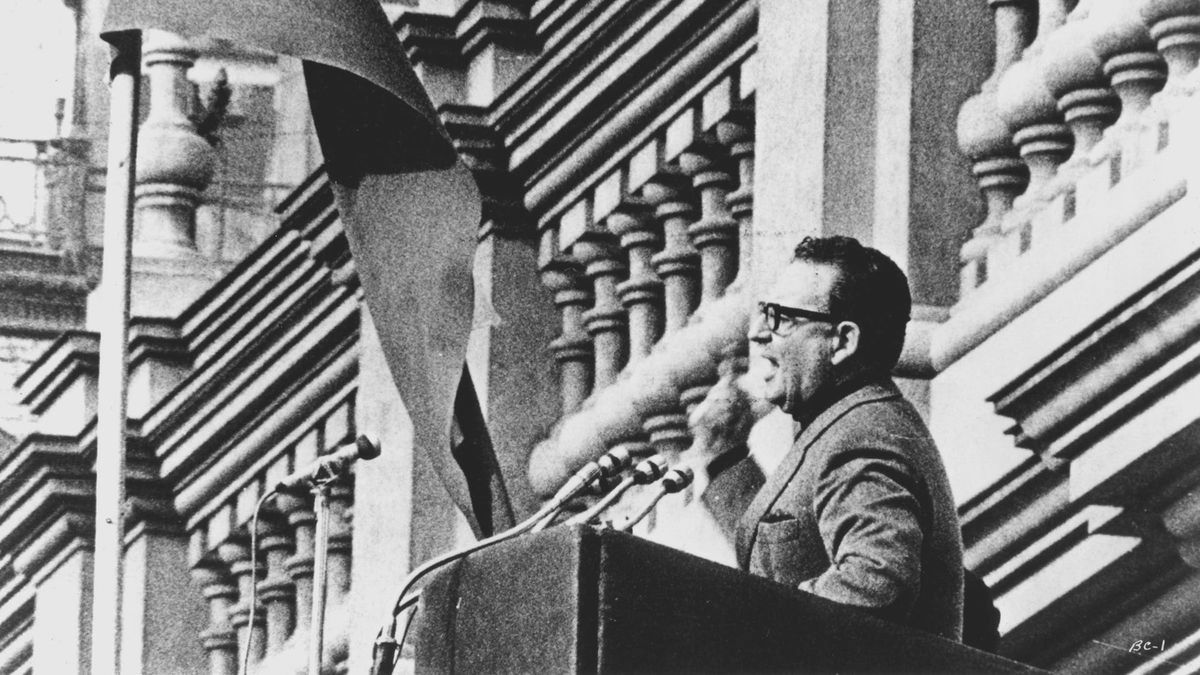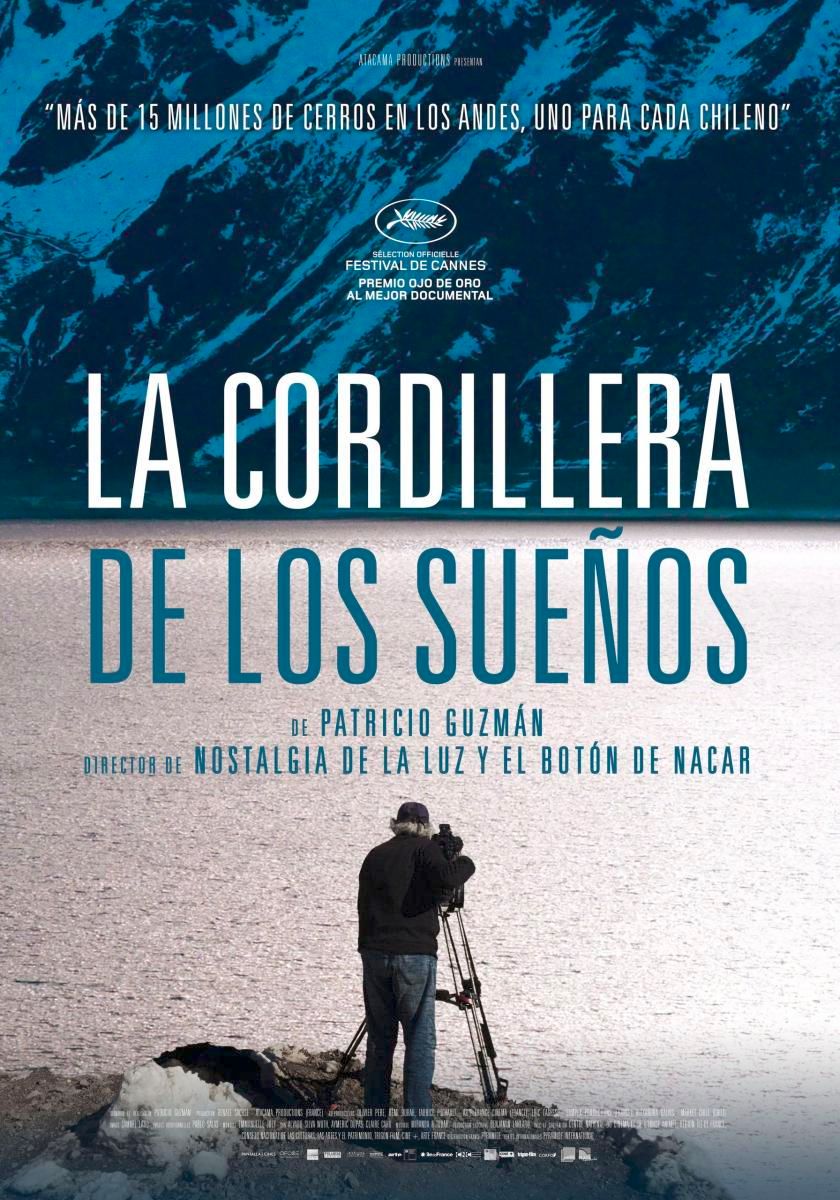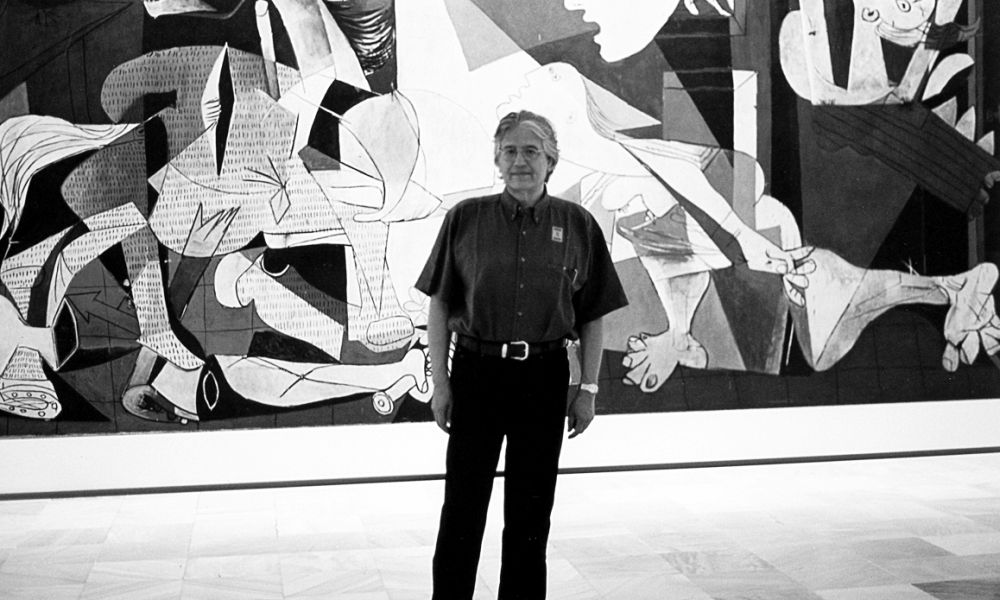"Guzmán’s international reputation as a documentary filmmaker has been secured by La batalla de Chile, hailed by both Marxist and non-Marxist critics in many countries as a landmark in the history of the political documentary." - Dennis West (International Dictionary of Films and Filmmakers, 2000)
Patricio Guzmán
Director / Screenwriter / Editor
(1941- ) Born August 11, Santiago, Chile
21st Century's Top 100 Directors
(1941- ) Born August 11, Santiago, Chile
21st Century's Top 100 Directors
Key Production Countries: Chile, France, Cuba, Spain
Key Genres: Documentary, History, Politics & Government, Social History, Culture & Society, Military & War
Key Collaborators: Chris Marker (Producer), Jorge Müller Silva (Cinematographer), Pedro Chaskel (Editor/Screenwriter), Abilio Fernández (Narrator), Julio García Espinosa (Screenwriter), Jose Bartolome (Screenwriter), Federico Elton (Screenwriter), Yves Jeanneau (Producer), Renato Sachse (Producer), Katell Djian (Cinematographer), Emmanuelle Joly (Editor), José Miguel Tobar (Composer)
Key Genres: Documentary, History, Politics & Government, Social History, Culture & Society, Military & War
Key Collaborators: Chris Marker (Producer), Jorge Müller Silva (Cinematographer), Pedro Chaskel (Editor/Screenwriter), Abilio Fernández (Narrator), Julio García Espinosa (Screenwriter), Jose Bartolome (Screenwriter), Federico Elton (Screenwriter), Yves Jeanneau (Producer), Renato Sachse (Producer), Katell Djian (Cinematographer), Emmanuelle Joly (Editor), José Miguel Tobar (Composer)
"Patricio Guzmán, a matchless artist in the realm of nonfiction film, hasn't lived in his native Chile since 1973. And yet for more than 40 years his homeland has remained his dearest and most charged subject. In his tireless stand on behalf of memory and against forgetting, Chile is the terrain he continually excavates and whose ghosts he exhumes, in films that range from the monumental three-part Battle of Chile through The Pearl Button, an exploration of the nation's treatment of its indigenous people." - Sheri Linden (Los Angeles Times, 2015)
"As an adolescent, he was inspired by the documentary films of Chris Marker, Frédéric Rossif and Louis Malle. He studied at the Film Institute at the Catholic University of Chile and at the Official School of Film in Madrid, where he obtained his degree in 1970. Guzmán returned to Chile in 1971 and directed his first documentary, The First Year, which covered the first 12 months of Salvador Allende's government. Chris Marker, who was passing through Chile at the time, saw the film and assisted in having it screened in France. Two years later, Marker again provided invaluable assistance when he donated the raw stock needed to begin filming The Battle of Chile, Guzmán's four-hour documentary trilogy chronicling Allende's final year. Filming lasted until the very day of the coup d'état on Sept. 11, 1973, when Guzmán and thousands of others were imprisoned in Chile's National Stadium. After gaining his freedom, Guzmán left for Europe. The Battle of Chile (1975-1979) won six grand prizes in Europe and Latin America and was shown in theaters in 35 countries. Cineaste declared it one of the 10 best political films in the world." - PBS Filmmaker Biography (2012)

The Battle of Chile: Part 1 (1975)
"If Guzmán’s predilection for naïve, wide-eyed wonder weighs down his recent films, it never eclipses the most striking feature of his work: the way in which dreamy musings and far-fetched speculations coexist with toughness, prickliness, and matter-of-factness. Guzmán has always been supremely attentive to the practical business of carrying out a complex task, be it a nonviolent revolution or a reign of terror. Whether attentively following a quarrel within a worker’s group over protest strategy in 1972, or, in 2015, reconstructing the process by which a body would have been wrapped, bound, weighed down, and summarily disposed of during the Pinochet years, Guzmán has always followed a method that nonfiction filmmakers everywhere would do well to emulate: look, listen, understand, reflect, and then—and only then—judge." - Max Nelson (Cinema-Scope)
"What is surprising is that except for his childhood in Santiago and the time he has spent filming in the country that has been the focus of the majority of his life's work, he has lived elsewhere, choosing self-imposed exile in Cuba, Spain or France, where he now lives. He lists his nationality as Chilean and Spanish. This ability to be deeply inside your subject, while simultaneously maintaining a certain distance, is ideal for a documentary filmmaker and clearly has been an asset to Guzmán, one of the world's most respected documentarians." - Cynthia Close (International Documentary Association, 2015)
"His vision has been influenced by the documentaries that found their way to the city in an era when the country did not have television. He has cited Alain Resnais’ Night and Fog (1955), Disney’s The Living Desert (1953) and Erwin Leiser’s Men Kampf (1960) as being among the films that “marked me forever”, and each bear thematic or stylistic commonalities with his work." - Peter Hill (BFI, 2016)
"A country without documentary films is like a family without a photo album." - Patricio Guzmán
Selected Filmography
{{row.titlelong}}
Patricio Guzmán / Favourite Films
Boxing Gym (2010) Frederick Wiseman, Gruningers Fall (1997) Richard Dindo, The Hour of the Furnaces (1968) Octavio Getino & Fernando E. Solanas, The Last Bolshevik (1993) Chris Marker, Modern Life (2008) Raymond Depardon, Mother Dao, the Turtlelike (1995) Vincent Monnikendam, One Hundred Children Waiting for a Train (1988) Ignacio Agüero, S21: The Khmer Rouge Killing Machine (2003) Rithy Panh, Shoah (1985) Claude Lanzmann, To Be and to Have (2002) Nicolas Philibert.
Source: Sight & Sound (2012)
Boxing Gym (2010) Frederick Wiseman, Gruningers Fall (1997) Richard Dindo, The Hour of the Furnaces (1968) Octavio Getino & Fernando E. Solanas, The Last Bolshevik (1993) Chris Marker, Modern Life (2008) Raymond Depardon, Mother Dao, the Turtlelike (1995) Vincent Monnikendam, One Hundred Children Waiting for a Train (1988) Ignacio Agüero, S21: The Khmer Rouge Killing Machine (2003) Rithy Panh, Shoah (1985) Claude Lanzmann, To Be and to Have (2002) Nicolas Philibert.
Source: Sight & Sound (2012)
Patricio Guzmán / Fan Club
Anand Patwardhan, Robert Greene, Andres Martinoli, Tomas Arcos, Gareth Evans (critic), James Marsh, Gary Crowdus, Ken Loach, Gerald Peary, Carlos A. Gutiérrez, Catherine Grant, Georgie Carr.
Anand Patwardhan, Robert Greene, Andres Martinoli, Tomas Arcos, Gareth Evans (critic), James Marsh, Gary Crowdus, Ken Loach, Gerald Peary, Carlos A. Gutiérrez, Catherine Grant, Georgie Carr.
"Fan Club"
These film critics/filmmakers have, on multiple occasions, selected this director’s work within film ballots/lists that they have submitted.
These film critics/filmmakers have, on multiple occasions, selected this director’s work within film ballots/lists that they have submitted.


